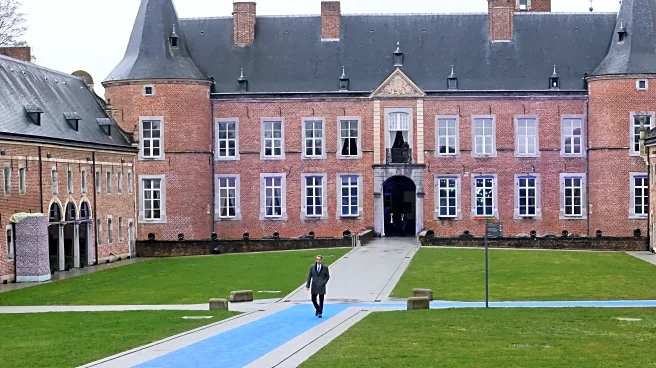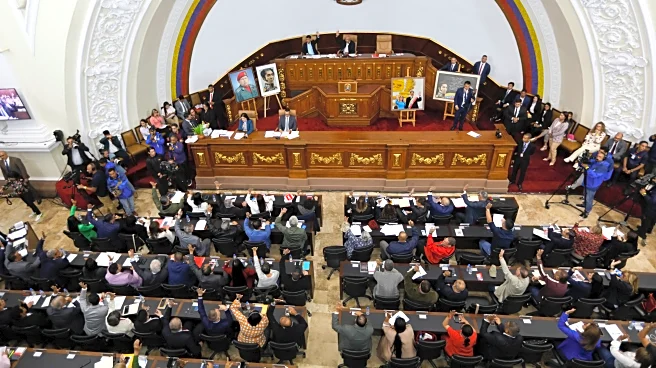What's Happening?
Vietnam is revising its flood management strategies in response to a series of severe storms that have caused significant damage across the country. The government has committed over $6 billion to a national
master plan aimed at adapting to climate extremes, which includes developing early-warning systems and relocating vulnerable communities. The plan also involves creating 'sponge cities' that can naturally absorb and release water, a concept being implemented in smaller cities like Vinh. The urgency of these measures is underscored by recent storms that have caused record rainfall and landslides, highlighting the need for improved infrastructure and planning.
Why It's Important?
The changes in Vietnam's flood management strategy are crucial as they address the increasing frequency and intensity of storms attributed to climate change. This shift is significant for Vietnam's economy, which is heavily reliant on agriculture and manufacturing, sectors that are vulnerable to flooding. The economic impact of extreme weather has been substantial, with losses estimated at $1.4 billion in 2025 alone. The adaptation measures could serve as a model for other countries facing similar challenges, emphasizing the need for sustainable urban planning and climate resilience.
What's Next?
Vietnam's efforts to adapt to climate change will likely continue to evolve as the government implements its master plan. The success of these initiatives could influence regional policies and encourage international cooperation on climate adaptation strategies. Additionally, the focus on 'sponge cities' and natural water management may inspire similar projects globally, promoting a shift towards more sustainable urban development practices.
Beyond the Headlines
The broader implications of Vietnam's strategy include potential shifts in urban planning and infrastructure development worldwide. As cities globally face the realities of climate change, Vietnam's approach could lead to increased investment in green infrastructure and a reevaluation of traditional flood management techniques. This could also spark discussions on the ethical and social responsibilities of governments to protect vulnerable populations from climate-related disasters.











